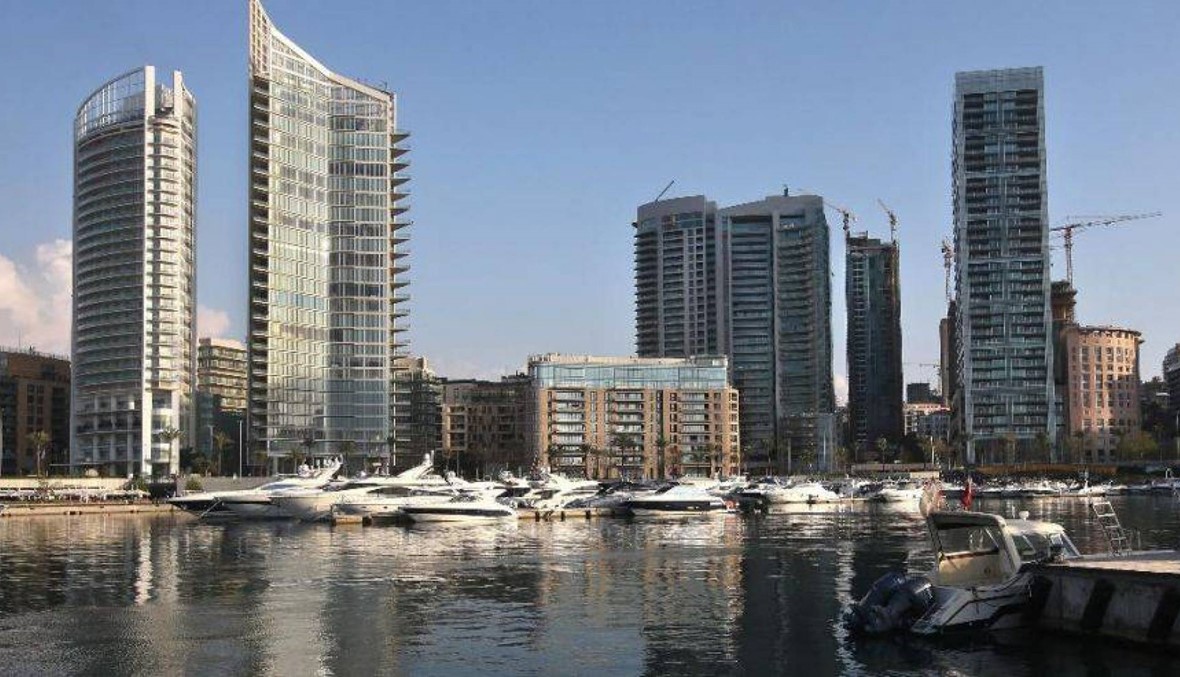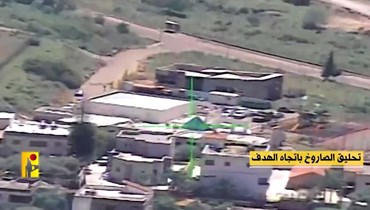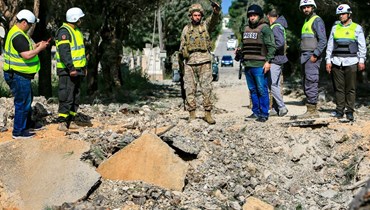The myth of magical Lebanese land whose price never drops
When professional real estate investors all over the world appraise a raw piece of land, they use a concept called "Best and Highest Use." They assess the different ways it can be developed — mall, office space, residential tower, opera house, parking lot, Ferris wheel, cinema, etc.
Then they calculate the Internal Rate of Return (IRR) for the projected cashflows of these different options. The IRR is a complex way to look at how much money you put in, how long it takes you to complete the project, and time it takes to get your money and profits back. All this is mathematically converted into an annual percentage rate to compare different alternatives, like putting your money in the bank at 17%, or buying stock in the S&P 500, or Bitcoin, and so on. Of course, in Lebanon, most investors think that IRR is an expletive leveled at you by someone from Bcharreh.
Let's say you own a piece of land in the most expensive neighborhood in town, like Solidere. Say you build a beautiful, huge bronze statue for your grandfather Latif, with a stunning garden around it, so your family can bring flowers to place at his mausoleum.
If you impose an irrevocable precondition of purchase that this statue can never be knocked down (to make way for a high-rise or other commercial structure); then what is the value of this piece of land? It’s pretty much zero for most rational people, although your cousin Jamil might pay top dollar, because he was an admirer of his role model Gramps Latif.
What is the best and highest value for this piece of land? This is a function of the regulations and zoning in this particular neighborhood, but the simple answer relates to the maximum number of floors you can construct (and resulting square meterage of the finished building).
Now let's say that you purchase a piece of land today with the intention of constructing a shiny new tower to add to all the ones puncturing the sky above Beirut. Knowing that apartments in completed buildings cannot be sold, with hundreds more coming online every month, it’s obvious that your tower, with 2-3 years to go, has a low probability of being sold. Therefore, you would sit on this land for years, or worse, if you build, you'd have an empty structure, collecting cobwebs, haunted by ghosts, and degenerating every year, while you pay maintenance costs, without seeing a penny for at least the next decade. On the other hand, if you deposit the money in a bank at 17-20% interest, your money would double every 4 years (Note: I’m NOT recommending you deposit your money in a bank, but just illustrating alternative options).
Therefore, if there's no demand for finished apartments, then (eventually, when people wake up) there will no significant demand for land, and their prices would drop correspondingly. What many people don’t realize is that in the Lebanese real estate chicken and egg problem, the egg came first — land prices rose, because the landowner next to the last development completed during the good times, watched apartment prices double by the time the building was completed. Thus, when the developer approached him to buy his land for the next project, he wanted part of the action, and doubled his price. Now, the reverse is taking place. As apartment prices drop, land prices are also.
Finally, one thing amateurs don't take into account when they assess the size of Lebanon in making the silly assertion that the price of land will always go up, are the loose zoning rules in this country, in which you can build 5-story buildings anywhere from Beirut to Anjar. What this means is that Lebanon is more like Hong Kong (minus the infrastructure, 24-hour electricity, and rule of law). In other words, you can put 50 million people here if you build all those monstrosities all over the country, without regard to infrastructure, like sewage, ditches to prevent flooding, water pipes, etc. By the way, if population density were the primary determinant for pricing, then Bangladesh, Bahrain, and Gaza, would all be more expensive than Lebanon.
The way most so-called experts assess real estate investments here in Lebanon is with this simplistic rule: Buy land, “ya khayyeh” — it will double in 3-4 years. This technique of investment relies on “The Greater Fool Theory.” Would you pay $100 for a can of Pepsi? Probably not, unless you were convinced that there’s some “greater fool” who’s willing to pay $120 for it. And this basically was the state of affairs in Lebanon up until around 2010. You could have thrown a dart at a map, bought a piece of land around the dart, and been almost certain to make a meaty return if you sold it two years later. It was such an easy way to make money, that many amateurs jumped on the bandwagon, like your dentist, gynecologist, bank manager, curtain salesman, etc. At one point, I didn’t know anyone who wasn’t “invested” in some shape or form in this racket. And for a long time it worked on gullible people with money — but no longer. Today, it’s not too difficult to find someone with money. It’s much easier to find someone gullible. However, finding someone gullible and with money is nearly impossible, consistently with Darwin’s theory of survival of the fittest, especially that everyone is chasing that same, nearly extinct breed.
Of course, myths take time to be purged from the collective psyche. At first, people were convinced that property prices in Lebanon, unlike anywhere else in the world, never drop. Then they moved on to “prices don’t drop — there’s just no buying and selling” — aka “Hummos Economics.” Then they evolved to the mathematically paradoxical concept of “Prices of large apartments drop, but not small ones.” Granted, subsidized (Iskan) loans, provided a temporary and artificial floor (a minimum price) for small apartments, which would eventually create an anomaly, as larger apartments, not qualifying for Iskan, drop down to that floor.
Now they've arrived at “apartment prices drop, but not land.”
Let’s give them a few more months, while that one sinks in too.
Dan Azzi is a regular contributor to Annahar. He has recently been invited to be an Advanced Leadership Initiative Fellow at Harvard University, a program for senior executives to leverage their experience and apply it to a problem with social impact. Dan’s research focus at Harvard will be economic and political reform in a hypothetical small country riddled with corruption and negligence. Previously, he was the Chairman and CEO of Standard Chartered Bank Lebanon


 اشترِك في نشرتنا الإخبارية
اشترِك في نشرتنا الإخبارية











